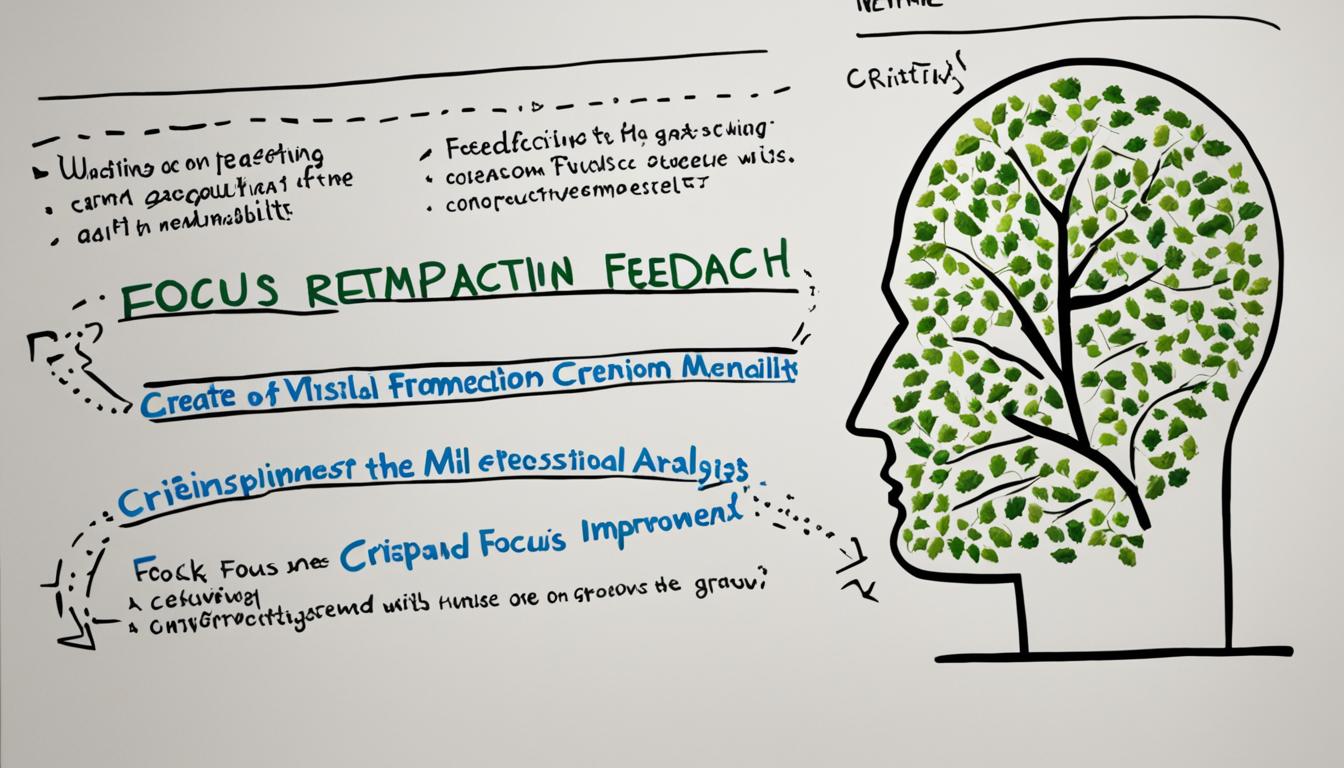Welcome to our article on mentoring youth and the importance of parenting and coaching mental skills for junior golfers. As parents and coaches, we understand the significance of providing young golfers with the necessary tools and support to develop their mental resilience and excel in their game. Whether it’s through mental toughness training, golf psychology for kids, or junior golf performance development, mentoring plays a vital role in nurturing the potential of young athletes.
Parenting and coaching strategies for junior golfers involve building confidence, instilling discipline, and fostering a positive mindset. By focusing on youth golf mental training, we can equip young golfers with the skills to overcome challenges, manage stress, and perform at their best under pressure. Ultimately, our aim is to raise successful junior golfers who not only excel on the course but also develop valuable life skills that will benefit them beyond their golfing journey.
In this article, we will explore the benefits of mentoring for youth, including its impact on academic performance, behavioral outcomes, and overall development. We will also discuss the importance of establishing effective mentoring relationships and the potential harmful effects of short-term connections. By understanding the profound impact of mentoring, we can create an environment that fosters resilience and success in junior golfers.
Before we dive into the details, let’s take a moment to appreciate the valuable role that mentoring plays in shaping the lives of young golfers.
Key Takeaways:
- Mentoring is essential for parenting and coaching mental skills for junior golfers.
- Parenting tips and coaching strategies focus on building confidence in young golfers.
- Mentoring helps young golfers develop mental toughness and manage stress.
- The benefits of mentoring include improved academic performance and reduced behavioral problems.
- Establishing long-term mentoring relationships is crucial for positive outcomes.
The Benefits of Mentoring for Youth
Mentoring programs for youth provide numerous benefits that positively impact their lives. This section explores the educational, behavioral, and other potential benefits of mentoring for young individuals.
Educational Benefits
One of the key advantages of mentoring programs for youth is their significant impact on education. Mentored youth display improved academic performance, higher graduation rates, and reduced dropout rates compared to their non-mentored peers. These mentoring relationships instill a better attitude towards school, leading to higher college enrollment rates and increased aspirations for higher education.
Behavioral Benefits
Mentoring plays a vital role in shaping positive behavior in youth. Mentored individuals demonstrate improved behavior both at home and at school, displaying stronger interpersonal skills and enhanced relationships with parents, teachers, and peers. Mentoring programs have also shown a decreased likelihood of young individuals engaging in drug and alcohol use, fostering a healthy and responsible lifestyle.
Other Potential Benefits
In addition to the key educational and behavioral benefits, mentoring programs offer various other advantages for youth. These include enhanced self-esteem and self-confidence, improved social-emotional development, and better overall well-being. Mentored individuals also report better relationships with their parents and perceive higher levels of support from them. Moreover, mentoring programs have been linked to increased prospects for higher education, as they empower youth to pursue their educational goals and aspirations.
Overall, mentoring for youth goes beyond academic improvements and behavioral changes, positively influencing their personal development and future prospects.
| Benefits of Mentoring for Youth | Description |
|---|---|
| Educational Benefits | – Improved academic performance – Higher graduation rates – Reduced dropout rates – Increased college enrollment – Enhanced aspirations for higher education |
| Behavioral Benefits | – Improved behavior at home and school – Enhanced interpersonal skills – Stronger relationships with parents, teachers, and peers – Decreased likelihood of drug and alcohol use |
| Other Potential Benefits | – Increased self-esteem and self-confidence – Enhanced social-emotional development – Better well-being and emotional regulation – Improved relationships with parents – Higher levels of parental support – Increased prospects for higher education |
Potential Effects of Mentoring on Academic Performance
Research has shown a positive association between mentoring programs and academic performance. Mentored youth have been found to earn higher grades compared to their peers who do not have mentors.
School-based mentoring programs have been particularly effective in improving academic performance, especially in subjects like science and written and oral communication. Mentored youth also tend to have better school attendance, with fewer unexcused absences compared to students without mentors.
Teachers have reported that mentored students are more engaged in the classroom and place a higher value on education. While the improvement in academic performance is moderate, mentoring programs can have a positive impact on youth’s educational outcomes.
| Effects of Mentoring on Academic Performance |
|---|
| Mentored youth earn higher grades compared to peers without mentors |
| School-based mentoring programs show improved performance in subjects like science and written/oral communication |
| Mentored youth have better school attendance and fewer unexcused absences |
| Teachers report that mentored students are more engaged in the classroom and value education |
These findings highlight the important role of mentoring in promoting academic success and positive attitudes towards education.

Impact of Mentoring on Behavioral Outcomes
Mentoring programs play a crucial role in shaping the behaviors of young golfers, with notable benefits observed in various areas. Mentored youth not only exhibit decreased drug and alcohol use compared to their peers without mentors, but they also demonstrate a significant reduction in violent behavior. According to a recent study, mentored youth were found to have lower rates of physically assaulting someone over the past year.
“Mentoring has shown promising results in reducing negative behaviors among young golfers.”
While mentoring programs may not entirely eliminate all delinquent behaviors, they have been successful in reducing specific behaviors associated with delinquency. By providing guidance, support, and positive role modeling, mentors help mentees develop important life skills that steer them away from negative influences and empower them to make informed and positive choices.
The Benefits of Mentoring on Behavioral Outcomes:
- Decreased Drug and Alcohol Use: Mentored youth are less likely to engage in risky behaviors such as drug and alcohol use compared to their peers without mentors.
- Reduced Violent Behavior: Mentored youth exhibit lower rates of physically assaulting someone, demonstrating the positive impact of mentorship in curbing violent tendencies.
- Lower Delinquency Rates: Mentoring programs have been effective in reducing specific delinquent behaviors, contributing to a decrease in overall delinquency rates among mentored youth.
- Life Skills Development: Mentoring equips young golfers with essential life skills, empowering them to make positive choices and avoid negative influences.
Mentoring has proven to be a valuable tool in fostering positive behavioral outcomes among young golfers. By providing guidance, support, and a nurturing relationship, mentors help shape the behaviors of mentees, promoting a safer and more positive environment for their development.
Other Potential Benefits of Mentoring
In addition to the academic and behavioral benefits, mentoring has been linked to other positive outcomes for young golfers. Research suggests that mentoring contributes to social-emotional development, leading to improved emotional regulation and well-being. Mentored youth also report better relationships with their parents and perceive higher levels of support from them. Furthermore, mentoring has been associated with increased prospects for higher education, as mentored youth are more likely to enroll in college and have higher educational aspirations.
These additional benefits highlight the comprehensive impact of mentoring on the overall development of young golfers.

| Benefits of Mentoring | Description |
|---|---|
| Social-Emotional Development | Mentoring contributes to improved emotional regulation and well-being in young golfers. |
| Improved Parental Relationships | Mentored youth report better relationships with their parents and perceive higher levels of support from them. |
| Higher Education Prospects | Mentored youth are more likely to enroll in college and have higher educational aspirations. |
Mentoring Benefits for Mentors
Mentoring is not only a valuable experience for young golfers, but it also offers significant benefits for mentors themselves. Mentoring provides a sense of fulfillment and personal growth, resulting in increased self-esteem and a sense of accomplishment. Mentors have the unique opportunity to make a positive impact on the lives of young golfers, which can be incredibly rewarding.
Furthermore, mentoring allows mentors to build valuable networks of volunteers and like-minded individuals who share their passion for youth development. These mentor networks provide a supportive community where mentors can exchange ideas, collaborate, and continue their own personal and professional growth.
| Mentoring Benefits for Mentors | Description |
|---|---|
| Increased self-esteem | Mentors experience a boost in self-esteem as they witness the positive impact of their guidance and support on the lives of young golfers. |
| Sense of accomplishment | Mentoring provides mentors with a deep sense of accomplishment as they contribute to the development and success of young golfers. Seeing mentees grow and thrive is incredibly fulfilling. |
| Mentor networks | Mentoring opens doors to valuable mentor networks where mentors can connect with other experienced mentors and professionals in the field of youth development. These networks provide a platform for collaboration, idea-sharing, and continued learning. |
| Insight into youth development | Through mentoring, mentors gain valuable insights into the various challenges and opportunities faced by young golfers. This firsthand experience strengthens mentors’ understanding of youth development and equips them with practical skills and knowledge. |
Moreover, mentoring cultivates enhanced patience and improved supervisory skills in mentors. Mentors learn to tailor their guidance and support to the specific needs of young golfers, fostering a nurturing and empowering environment for their mentees.
Mentoring is a mutually beneficial experience that empowers mentors and contributes to the development and success of young golfers. By dedicating their time and expertise, mentors play a vital role in shaping the future of young golfers and creating a positive impact on the sport.
Importance of Effective Mentoring Relationships
The success of mentoring programs relies heavily on the establishment of strong and long-term relationships between mentors and mentees. These relationships play a crucial role in nurturing the growth and development of young golfers. When mentors and mentees are able to form lasting connections, the benefits extend far beyond the duration of the mentoring program.
“Long-term relationships between mentors and mentees provide a solid foundation for growth and support.”
Short-term mentoring relationships, those lasting less than three months, can have harmful effects on youth. These relationships often lack the depth and continuity needed to effectively address the mentees’ needs. Irregular contact and a disconnect between mentor and mentee can hinder the mentoring process, preventing the mentee from receiving the guidance and support necessary for their development.
“Short-term relationships can hinder the mentoring process and limit the mentee’s potential for growth.”
Unprepared mentors can also contribute to harmful mentoring experiences. Mentoring programs need to ensure that mentors are equipped with the necessary skills and training to meet the unique needs of young golfers. Without proper preparation, mentors may be ill-equipped to provide the guidance and support required for the mentees’ growth.
“Prepared mentors are essential for fostering a positive mentoring experience.”
Additionally, the absence of an emotional bond between mentor and mentee can significantly impact the success of mentoring relationships. Mentoring programs should promote the creation of strong emotional connections between mentors and mentees, as these bonds serve as a source of trust, support, and motivation.
“Emotional bonds between mentors and mentees lay the foundation for a successful mentoring experience.”
Mentoring programs must prioritize the establishment of effective long-term relationships to ensure positive outcomes for young golfers. These relationships provide stability, guidance, and a consistent source of support that are essential for the mentees’ well-being and development.
“Effective mentoring relationships are vital for the growth and success of young golfers.”
Conclusion
Mentoring plays a vital role in parenting and coaching mental skills for young golfers. Through mentoring, we can unlock a world of benefits that contribute to the overall development and success of junior golfers.
Firstly, mentoring has been proven to improve academic performance, providing young golfers with the support and guidance they need to achieve higher grades and excel in their studies. Additionally, mentoring reduces behavioral problems, helping young golfers make positive choices and steer clear of drug and alcohol use.
Furthermore, mentoring fosters stronger relationships, both with parents and peers. By nurturing these connections, young golfers develop social-emotional skills and emotional resilience, which are essential for navigating the challenges of golf and life.
Lastly, mentoring not only benefits the mentees but also the mentors themselves. Mentors experience a sense of fulfillment and personal growth as they make a positive impact on the lives of young golfers. By establishing long-term, supportive relationships, parents and coaches can foster resilience and success in junior golfers, empowering them to thrive on and off the green.
FAQ
What is mentoring?
Mentoring is a supportive relationship between a mentor and a mentee, aimed at providing guidance, support, and encouragement to the mentee’s personal and professional development.
How can mentoring benefit young golfers?
Mentoring can benefit young golfers by improving their academic performance, reducing behavioral problems, enhancing relationships, and increasing opportunities for higher education.
Can mentoring programs improve academic performance?
Yes, mentoring programs have been found to improve academic performance, including higher grades, improved attendance, and positive attitudes towards education.
Can mentoring programs help reduce negative behaviors in young golfers?
Yes, mentoring programs have been shown to decrease the likelihood of drug and alcohol use, reduce violent behavior, and help develop important life skills that steer youth away from negative behaviors.
What are some additional benefits of mentoring for young golfers?
Mentoring has been linked to improved social-emotional development, better relationships with parents, and increased prospects for higher education.
Do mentors also benefit from the mentoring relationship?
Yes, mentors also benefit from mentoring by experiencing increased self-esteem, a sense of accomplishment, building mentor networks, and gaining valuable insights into youth development.
Why is establishing effective mentoring relationships important?
Establishing long-term, supportive mentoring relationships is crucial for the success of mentoring programs. Short-term or disconnected relationships can be harmful to mentees and have a negative impact on their well-being.



